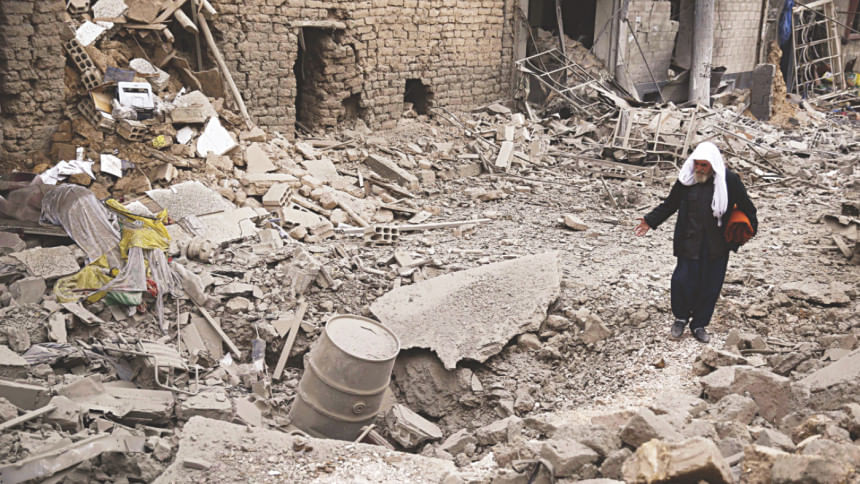Key players seek path out of war

Major backers of Syria's warring rivals including the United States, Russia and Iran was to yesterday seek to narrow divisions over the future of the country and its embattled President Bashar al-Assad.
The participation of Iran at the international crisis talks in Vienna for the first time is seen as a crucial shift because the key regime supporter was previously excluded.
The United States and its allies including Saudi Arabia and Turkey have long been at odds with Assad's backers Russia and Iran over if and when the Syrian leader should step down.
But an exodus of Syrian refugees and the Islamic State jihadist group's sweeping territorial gains have brought signs of a narrowing of differences over a four-year conflict that has cost a quarter of a million lives.
"Europe's refugee crisis has convinced everyone that we needed a transition phase, that Assad's authoritarianism was the lesser of two evils," said Karim Bitar of the Institute for International and Strategic Relations in Paris.
"Most Westerners have adopted a more realistic stance on Syria and sort of accepted the idea that Assad will remain at the helm for a transition period."
The stumbling block to a breakthrough could come from Saudi Arabia and Turkey, he added.
As part of a flurry of diplomatic activity in Vienna, US Secretary of State John Kerry and Russian Foreign Minister Sergei Lavrov were both due to meet separately with Iranian Foreign Minister Mohammad Javad Zarif yesterday.
Kerry and Lavrov were later scheduled to hold multilateral talks with their counterparts from Saudi Arabia and Turkey, which like the United States back Syrian rebels opposed to Assad.
Those talks come ahead of a wider meeting today that will mark the first time that all the major non-Syrian players in the conflict -- including the United States, Russia, Iran, Saudi Arabia and Turkey -- are in the same room.
Representatives from Britain, Egypt, France, Germany, Italy, Lebanon, the European Union, and possibly other Arab states, were also expected to attend.
So far there has been no mention of either the Syrian government or the opposition taking part.
Kerry has cautioned that this week's talks would not secure an immediate political solution, but represented the best hope available.
"While finding a way forward on Syria will not be easy -- it's not going to be automatic -- it is the most promising opportunity for a political opening we have seen," he said just before he set off for Austria.
"The challenge that we face in Syria today is nothing less than to chart a course out of hell," he added.
Washington is at loggerheads with Moscow over Syria, accusing Russian forces of concentrating their air campaign there on moderate oppositions.
But Kerry has stressed that the US and Russia also shared "common ground", arguing that both want "a united, secular Syria" in which citizens can choose their own leader through elections.

 For all latest news, follow The Daily Star's Google News channel.
For all latest news, follow The Daily Star's Google News channel. 



Comments